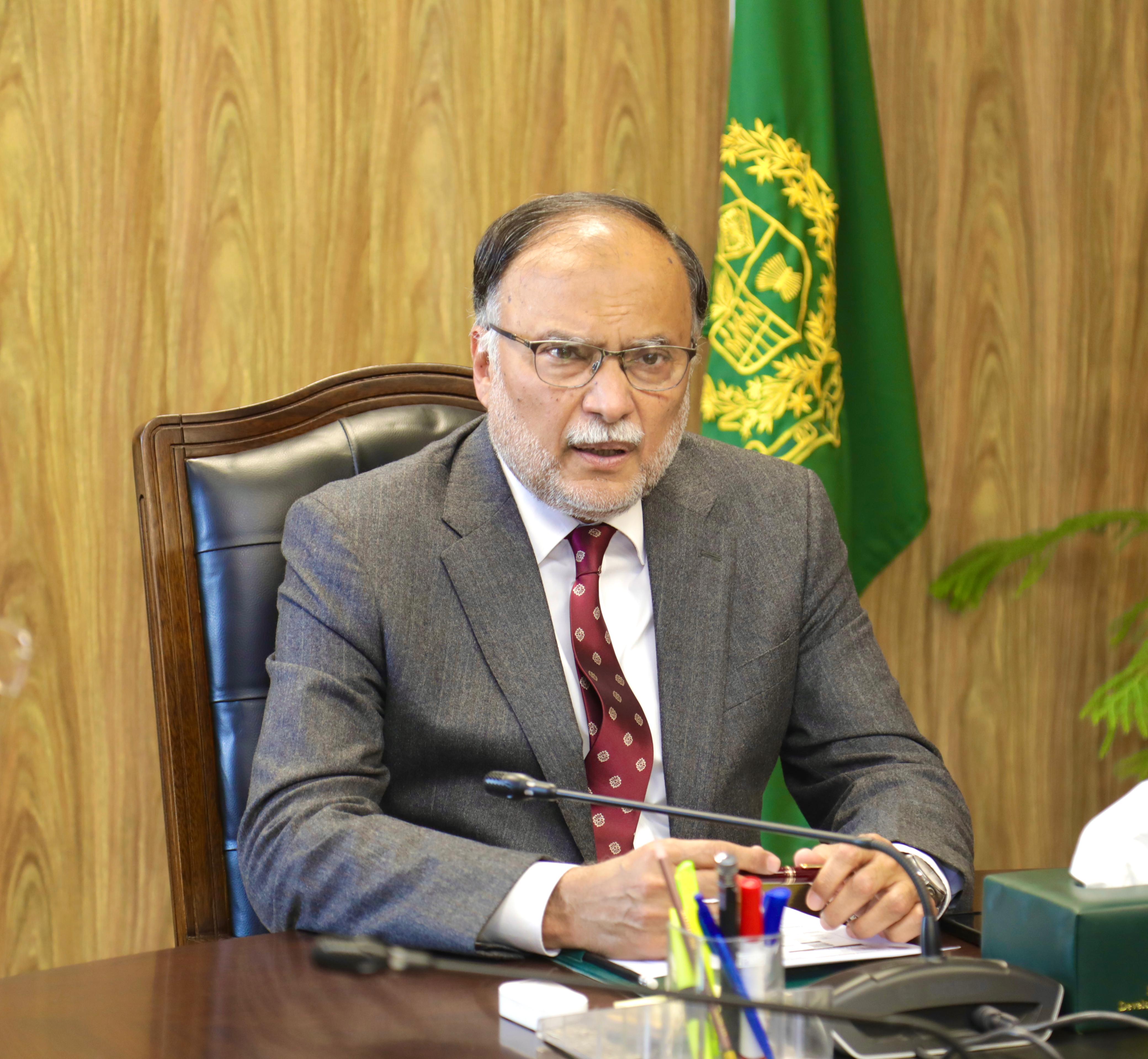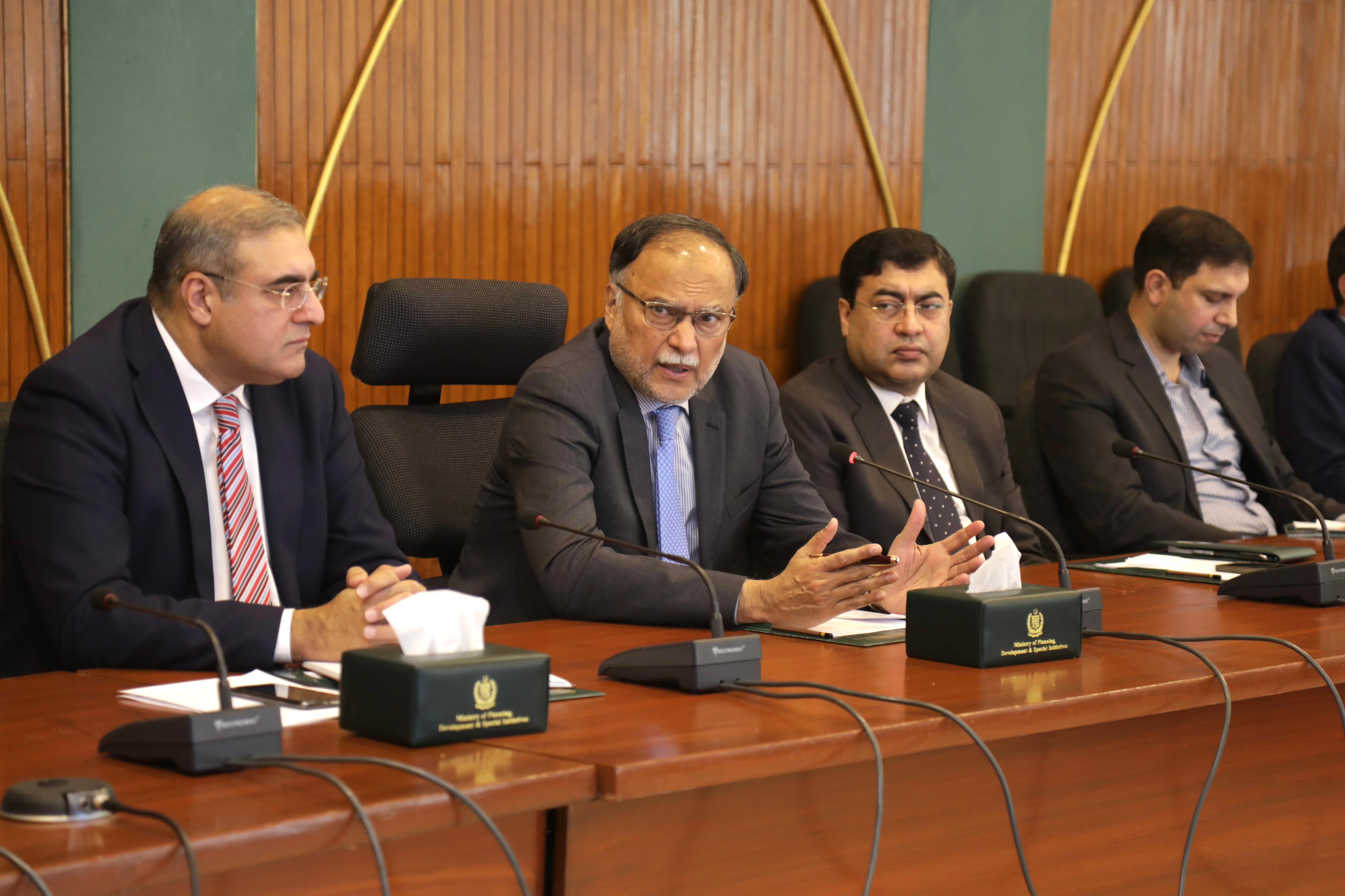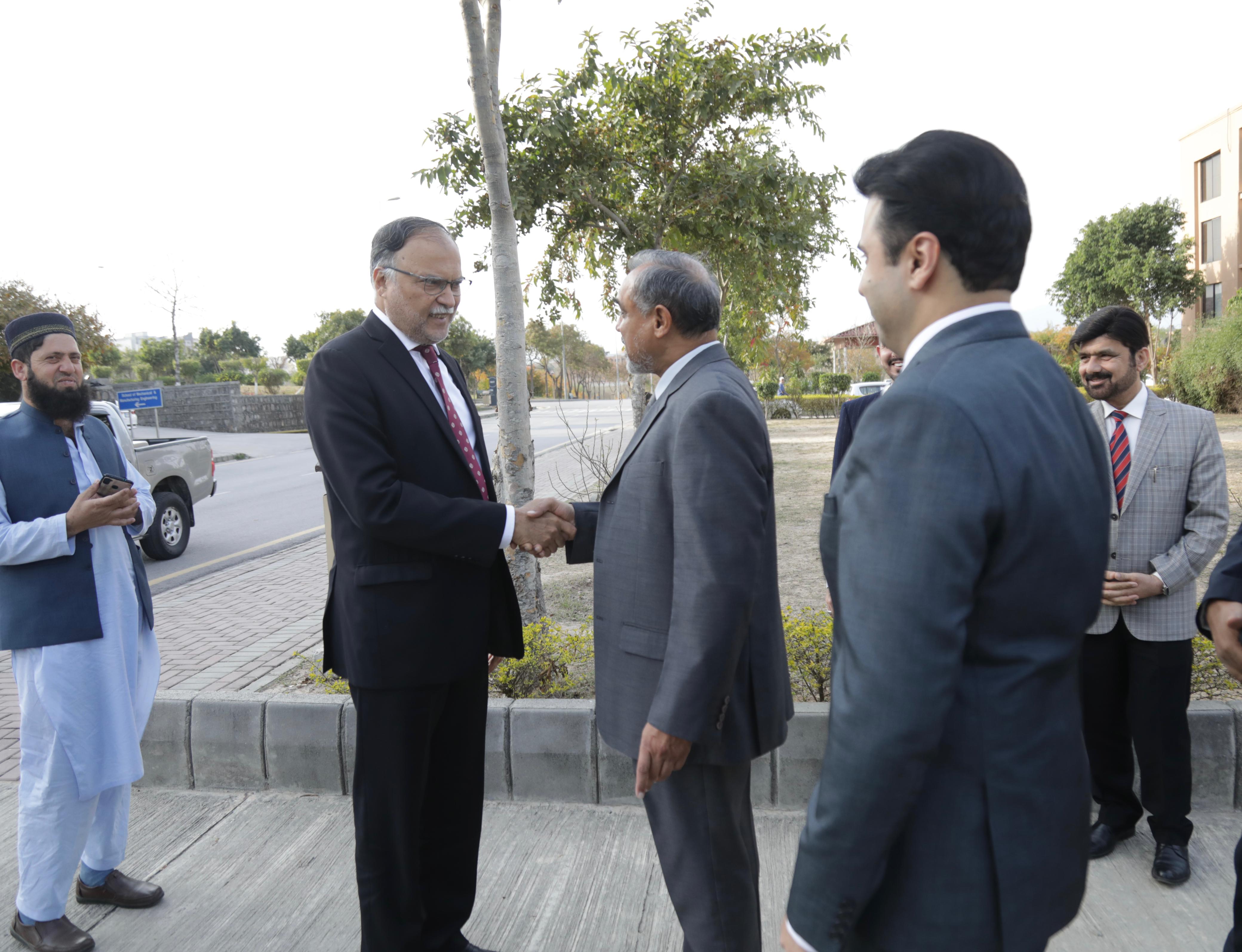
Development & Special Initiatives
Press Release/Tickers

The CDWP meeting presided over by Deputy Chairman ...
Published : 15 March 2024
The CDWP meeting presided over by Deputy Chairman Planning Commission ...
وزارت منصوبہ بندی کا 5 ایز ف�...
Published : 14 March 2024
وفاقی وزیر برائے منصوبہ بندی ترقی و خص�...
Ahsan Iqbal reviews progress of National Centers o...
Published : 13 March 2024
The newly-appointed Federal Minister for Planning Development & Specia...
Ahsan Iqbal briefing Senate Forum for Policy Research at PIPS
Dated : 7 March 2017
Islamabad, March 7, 2017: Federal Minister for Planning, Development and Reform, Prof. Ahsan Iqbal has stated that CPEC would enlist Pakistan among top 25 economies of the world by 2025. He further said that US $50 billion dollar investment under the framework of China Pakistan Economic Corridor (CPEC) has integrated Pakistan’s economy with the world for the first time.
He was briefing the Senate Forum for Policy Research (SFPR) at Pakistan Institute of Parliamentary Services (PIPS) under the chairmanship of Syed Nayer Hussain Bokhari on Tuesday.
Stressing the importance of Pakistan’s geographical location, he said that CPEC would physically and economically integrate Pakistan with China, Central Asian Republics and Eurasian region under the wider framework of One Belt One Road (OBOR) and Pakistan vision 2025. He noted that CPEC and One Built One Road would collectively transform and improve the lives of three billion people which rightly sets the context of this mega regional initiative as “Game Changer” in the region.
Minister Prof. Ahsan Iqbal briefed the participants that CPEC framework includes Energy, Infrastructure, Gwadar and development of Industry Cooperation which would be completed in four phases; early harvest projects by 2017-18, short term by 2020, medium term by 2025 and long term by 2030. Stating the facts and mode of financing mechanism, he made it clear that complete transparency is being ensured in investment of CPEC. He reiterated that not even a single dollar of CPEC investment is being processed through Government of Pakistan’s accounts. Explaining the breakdown of Chinese investment under CPEC, he stated that the US$35 billion investment under Energy Portfolio is being done in Independent Power Producer’s (IPP) Mode which is being regulated by NEPRA. He further said that CPEC energy projects would generate 14-15000 megawatts of electricity which would help overcome the prevailing energy crisis. CPEC energy portfolio includes coal, hydel and renewable energy projects. Three hydel projects including Sukki Kinari, Karot and Kohala are under implementation.
He further noted that the process of selecting a construction company is done through a transparent process where China through National Development and Reform Commission (NDRC) proposes three names. Pakistan selects the cost effective and efficient company for the CPEC Projects. In the same manner, he apprised the participants that infrastructure sector projects are being financed through concessional loans on a meager low interest rate of 2 percent payable over 20-25 years.
He briefed that work is in progress on KKH (Havelian to Thakot section) and Peshawar-Karachi motorway (Multan-Sukkur section). On western route, he said that it would be completed by 2018 while adding that work on different sections including Hakla-Burhan and Dera Ismail Khan Zhobe of western route is being done on high priority according to the decisions made in All Parties Conference held in 28 May 2015.
Minister Iqbal stated that the development of Gwadar deep sea port would usher in a new era of development in the province of Balochistan. He noted that Gwadar being a gateway of CPEC, link the West Asia, Central Asia, Russia and Eurasia to warm waters of Arabian Sea and onwards to Mediterranean region. He highlighted that Gwadar International Airport, Gwadar Expressway and 300 Megawatt electricity project has been planned for Gwadar alongside Water Treatment Plants and Rail networks, Schools, Gwadar University and state-of-the-art hospital for the local people of area.
He remarked that CPEC transport infrastructure projects would transform and facilitate connectivity across Pakistan. In this regard, he pertinently mentioned that the completion of missing link of western route from Quetta to Gwadar stretch about 650 km has reduced travel time to mere 8 hours which was otherwise a two day long journey.
Prof. Ahsan Iqbal further said that up-gradation of Mainline One ML-1 (Karachi-Peshawar-Landikotal Line) is being done whereas feasibility study for extension of railway line up till Gwadar and Quetta to Peshawar have been started. Up-gradation of ML-1 would cost US$8 billion and its completion would double the speed of railway from 80 to 160 km/h.
Expressing hope for Industry Cooperation between China and Pakistan under CPEC framework, Minister said that this joint initiative would ensure suitability of this multi-billion project. In this regard, he noted that nine Special Economic Zones (SEZs) have been agreed between China and Pakistan in the recently held Joint Cooperation Committee (JCC) meeting in Beijing. Accordingly, all provinces would be developing one Special Economic Zone each whereas Federal Government would be developing SEZ in Islamabad and on federal land of Pakistan Steel Mill in Karachi. Provincial and Federal Governments are working together for developing their respective SEZs. Minister further briefed the participant about the project of digital connectivity which includes the laying of Optic Fiber from Khunjerab to Gilgit Baltistan, parts of Khyber Pakhtunkhwa and onwards to Islamabad. He noted that optic fiber project would enhance IT related opportunities in relatively backward areas of GB and parts of KP province.
Prof. Ahsan Iqbal expressed hope that CPEC would bring in eight major benefits. He keenly noted that US$ 50 billion would boost GDP growth rate by 6-8 percent, ensure energy security besides overcoming prevailing energy crisis, bolster Pakistan’s industrial capacity and link Pakistan’s rural and remote areas with urban centers. He further said that CPEC would strengthen Pakistan domestically, bring in prosperity, enabling transfer of knowledge and technology as well as would elevate Pakistan’s regional status.
Answering the questions raised by participants, he said that the dualization of Indus Highway (Kohat to Lakki Marwat) has been started and funds have been released from Federal PSDP. Similarly, he informed the participants that work would be initiated on Kohat-Pindi Gaip link road from western route soon. He further stated that two major road arteries from Kabul to Quetta and Herat to Turkmenistan are being planned under CAREC framework.
Minister Ahsan Iqbal further highlighted that CPEC projects also aim at ensuring Human Resource Development and Training Programs including National Transport Policy, and Consortium of Pakistan’s top five business schools. Replying to a question on Balochistan, he stated that road networks are being laid out across the province especially Gwadar. Similarly, Gwadar University is being built and 2 Million Gallon/Day Reverse Osmosis plant is being made functional again. In addition, a 5MGDs new desalination is in progress under CPEC.
Prof. Ahsan Iqbal also stated that Pakistan has sufficient coal resources to last 400 years and is therefore capable of producing 5000 megawatts of electricity annually. He stressed that Super Critical Technology is being used which would not lead to environmental pollution. He further stated that each CPEC project passes through Environmental Impact Assessment (EIA) prior to approval.
Participants of SFPR included Senator Mushahid Hussain Syed, Senator Saood Majeed, Wasim Sajjad, Senator (R) Afrasiyab Khattak, Muhammad Anwar Bhinder, Senator (R) Javed Jabbar, Rukhsana Zuberi, Haroon Akhtar Khan and Razeena Alam Khan.








